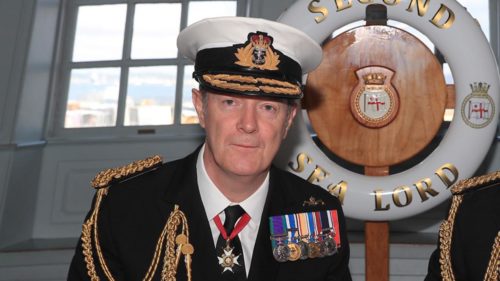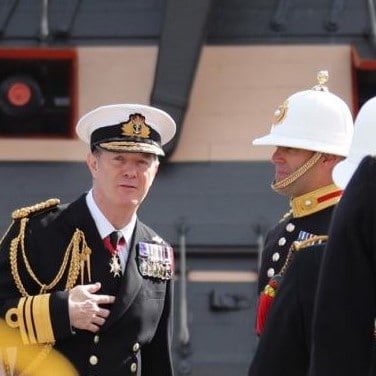News
“Autism made me a better Naval Officer”
Vice Admiral Nick Hine: ‘To be blunt, autism made me a better naval officer’
Second Sea Lord speaks of his condition for the first time, telling Larisa Brown the forces need more ‘neurodiversity’
The following is an article that appeared in The Times – if you have a subscription, you can read the full article via this link.
Alternatively we have summarised the article below.

For most of his career, Vice Admiral Nick Hine (the Second Sea Lord) had been viewed by colleagues as being “obsessive, challenging and difficult”. Now he has revealed his autism diagnosis (he received a decade ago) as part of his urging others like him to join the military. In an interview with The Times, the former commander of a nuclear submarine said he was speaking out about his autism for the first time because he wanted to leave the navy in a better place.
In 2018 the military updated its “medical employment standards” to allow greater discretion on a case-by-case basis for a range of conditions, including neuro-diverse conditions such as autism and Asperger’s that previously had been a bar to service. Now there are 177 servicemen and women across all the services who have also declared their diagnosis for autism.
Next week Vice Admiral Hine is launching a “neurodiversity network” where servicemen and women can share and discuss their experiences like his: “I have a brain that is wired differently. It doesn’t mean that I am disabled, it doesn’t mean that I am odd, it doesn’t mean that I am in any way shape or form less capable. It means that I am different.”
He continues in The Times article: “As a military, we are not able to compete with adversaries in terms of mass. We do not have enough stuff. We are unlikely to be able to compete with adversaries in terms of technology, because they spend significantly larger sums of money. So the only way we are going to win and compete is by thinking differently, and therefore having people who think differently has got to be part of the solution.”
Hine got a professional diagnosis ten years ago, but as he rose through the ranks, chose to keep the diagnosis to himself and his close family. He explained that the skills associated with autism, such as precision, order, clarity and desire for structure, meant he thrived in the navy, but he also noted that noise, non-verbal communication and larger group conversations were difficult for him. “The world is made for neuro-typical people by neuro-typical people, and therefore it’s not surprising that people who are not neuro-typical have a series of challenges or a series of difficulties both in interacting with that world, but also in the world interacting with them”. In response to colleagues who described him as blunt, he sees himself as clear, unambiguous and honest. “I would say that clarity is a gift, frankly”.
Most of his operational career was based in the submarine service, including commanding HMS Talent – which he described as a “lonely activity”, which suited him because “not needing social acceptance is something that sits easily with that sort of level of responsibility. When you’re underwater and you are responsible for 100 people, and a nuclear reactor, and you’re operating in an environment, that is fundamentally hard. If you make a mistake, you will sink and you will die, and everybody else will. It is a level of responsibility that sits well [with me] and the focus and the ability to deliver on the complexity of that operation is something that I was naturally comfortable and reasonably good at.”
He was promoted to rear admiral in 2015 and to vice admiral in 2019. Asked why he was speaking out, he said: “This is the first time, and I’m talking about it now because as I’ve reached the end of my career, there is a sort of saying in the service that you should try and leave the service in a better place than you found it. And therefore, if I can do that by having some added value in the neurodiversity space, then I’ll be OK with that.”
External news article – all publishing rights and copyright remain with the original publisher and author.
